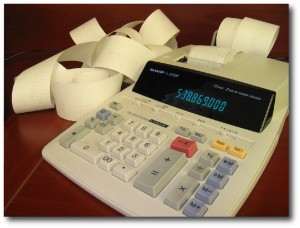It’s unfortunate that many seniors fail to claim all the tax deductions they can from year to year.
Especially if you do your own taxes, it’s important to be aware that the vast majority of medical expenses—including Medicare premiums—are tax-deductible. This includes medical expenses your spouse and dependents incur.
According to irs.gov, deductible medical expenses include “payments for the diagnosis, cure, mitigation, treatment, or prevention of disease, or payments for treatments affecting any structure or function of the body.”
That covers a lot of ground—from checkups and preventive care to treatments and long-term care.
 Along with most out-of-pocket payments including deductibles, premium payments are tax-deductible as long as you are the one paying for them. Premiums covered by an employer are not deductible on your return.
Along with most out-of-pocket payments including deductibles, premium payments are tax-deductible as long as you are the one paying for them. Premiums covered by an employer are not deductible on your return.
If you’re on Medicare, tax-deductible medical expenses are not limited to Medicare-approved services. According to irs.gov, there are many medical expenses you can claim deductions for on IRS Form 1040 Schedule A of your federal income tax return.
These include:
- Payments of fees to doctors, dentists, surgeons, chiropractors, psychiatrists, psychologists, and nontraditional medical practitioners
- Payments for in-patient hospital care or nursing home services, including the cost of meals and lodging charged by the hospital or nursing home
- Payments for acupuncture treatments or inpatient treatment at a center for alcohol or drug addiction
- Payments for participation in a smoking-cessation program and for drugs to alleviate nicotine withdrawal that require a prescription
- Payments to participate in a weight-loss program for a specific disease or diseases, including obesity, diagnosed by a physician (although payments for diet food items or the payment of health club are normally excluded)
- Payments for insulin and prescription drugs
- Payments for admission and transportation to a medical conference relating to a chronic disease that you, your spouse, or your dependents have (if the costs are primarily for and essential to required medical care; costs for meals and lodging are excluded)
- Payments for false teeth, reading or prescription eyeglasses or contact lenses, hearing aids, crutches, wheelchairs, and for guide dogs for the blind or deaf
- Payments for transportation required for qualifying medical care
(Source: IRS Tax Topics, Publication 502, Medical and Dental Expenses)
While you are able to claim a wide range of medical expenses on your return, note that nonprescription drugs other than insulin are not tax-deductible. Other non-deductible expenses include expenses for:
- Toiletries and cosmetics
- Programs for general health improvement
- Cosmetic surgery
- Nicotine gum and patches
- Over-the-counter drugs
Qualifying expenses must have been incurred during the year you’re filing taxes for. Expenses you are reimbursed for do not qualify.
If you’re a Medicare recipient, you have every right to claim deductions on your federal income tax return for Medicare premiums. Deductibles, copayments, coinsurance, and other out-of-pocket costs are also tax-deductible if they meet the conditions we’ve discussed thus far. And, as we’ve pointed out, many medical costs not approved by Medicare—including those for treatment by chiropractors and a variety of nontraditional practitioners—are tax-deductible.

Thanks for posting this. I have actually been a very long
time dental health advocate but I’ve never been compelled to leave
a remark. I’ve bookmarked your website and shared
this post on my Facebook.
Thanks again for a great post!